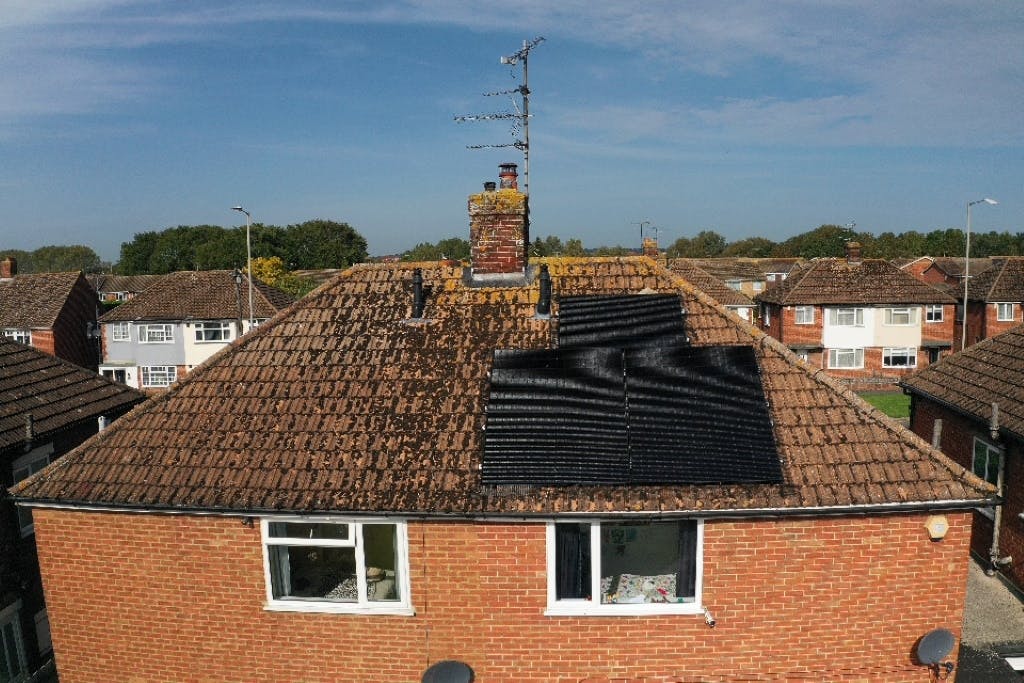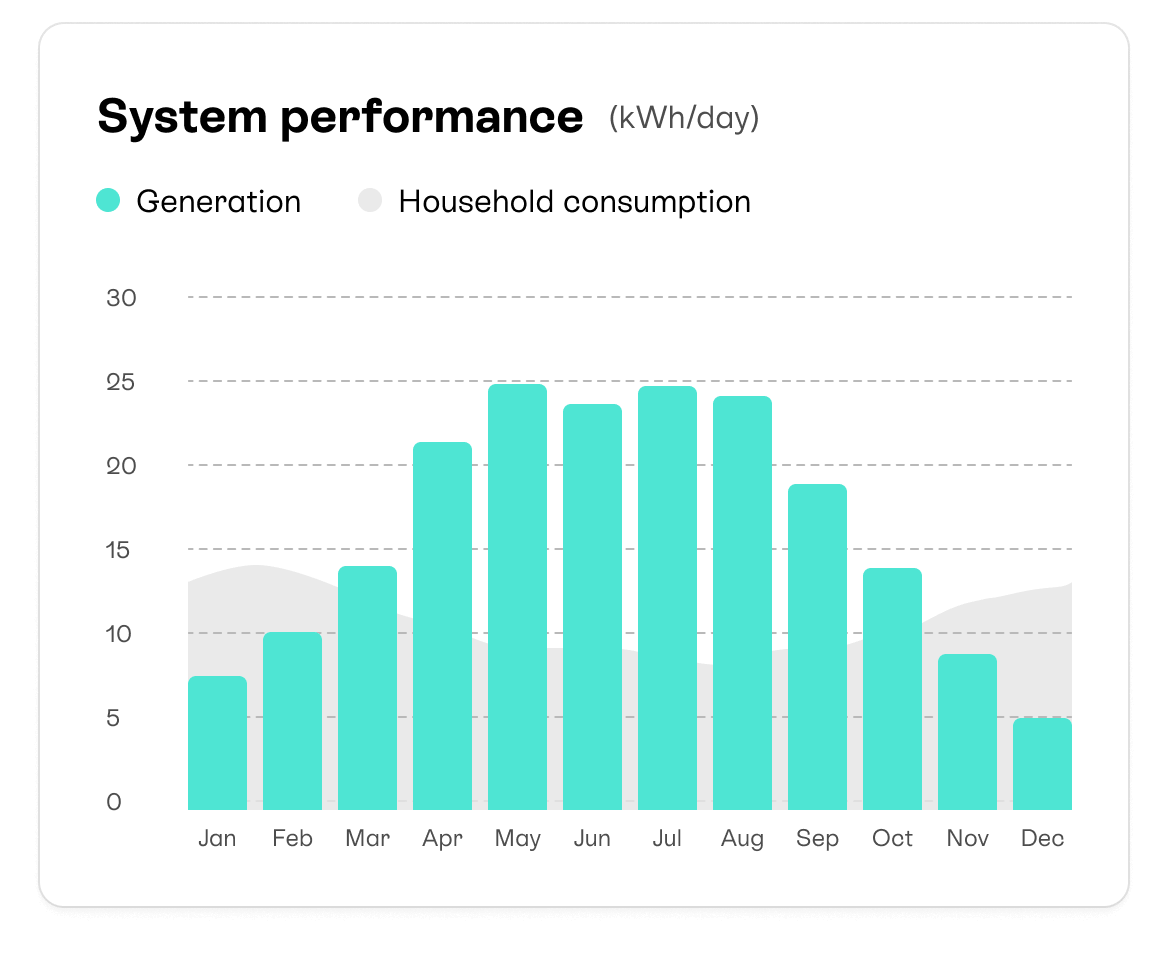- Solar advice hub
- Sunsave-announcement
- UK households can now get solar with no upfront cost
UK households can now get solar with no upfront cost
Sunsave Plus can put solar panels on your roof for £0 upfront, enabling you to make savings from day one.


Why you can trust our content
We know that the solar industry is full of misinformation, but we only use reliable sources, including:
- Our experienced solar experts, installers and system designers
- Our own database of solar & battery system designs
- Authoritative bodies like MCS and the UK government





Everyone would love free solar energy to slash their bills, but the high upfront cost makes it hard to afford. What if there was a way for UK households to switch to solar without needing £1000s in the bank?
What is Sunsave Plus and why did we launch it?
We've created Sunsave Plus, the UK’s first solar subscription, because we want to make solar accessible to all UK households.
There are three key reasons why we believe Sunsave Plus has come at just the right time for the UK solar market - here's a little more detail on each one.
1) High upfront costs
70% of UK households want to go solar, but so far only 4% have done so. That's an enormous gap, and the main reason is the upfront cost of buying solar panels is prohibitively high for most people.
Sunsave Plus lets households own solar panels and benefit from the free electricity they provide, without paying anything upfront. Instead, you make fixed monthly payments, spreading out the cost over time.
2) Lack of maintenance support
A 2021 UK government study discovered that 55% of people who aren't keen on solar were worried about the ongoing maintenance, and more than 40% said a guarantee scheme would allay these concerns – so we created one.
Sunsave Plus comes with the Sunsave Guarantee - 20-years of support including free replacement parts, monitoring and maintenance support, and downtime cover. Your system will also be fully insured by Aviva against damage, fire and theft. This is really important, as some technical experts in the industry estimate that a solar & battery system will require three maintenance call-outs across a 20-year period - one for the panels, one for the battery, and one for the inverter.
And each call-out can add substantially to the cost – not to mention the hassle of finding a reliable solar engineer to help every time.
3) Increasing demand for electricity
Making solar accessible to all households will only become more necessary as the electrification of the UK continues to accelerate over the coming decades.
To make our homes more energy-efficient and cut carbon emissions, we'll end up growing our electricity usage by 50% between 2020 and 2035, according to consultancy firm McKinsey, as heat pumps and electric vehicles become a fixture of people's homes across the country.
To power your heating, devices, and car, you'll need much more electricity - and solar energy is the solution.

Why should you get Sunsave Plus?
There's no upfront cost
20-year monitoring & maintenance support
Free replacement battery and inverter
Savings can exceed payments
Insured by Aviva
Fixed monthly payments
What is the Sunsave Guarantee?
Every Sunsave Plus subscription comes with the Sunsave Guarantee - a 20-year support and aftercare package that provides you with total peace of mind. Once installed, you can rest assured that you’ll have a consistent supply of clean, green electricity for the next 20 years. It's a comprehensive package that includes:
- A 30-year performance warranty on your solar panels
- A free battery replacement once it performs at less than 70% of its original capacity – which typically happens after 10-12 years
- A free inverter replacement, if required
- 24/7 monitoring of your system, including alerting you if something isn’t working
- Troubleshooting of any issues and management of any warranty claims
- Insurance - your system is fully insured by Aviva against damage, fire, and theft
- Downtime protection, meaning we’ll compensate you for any prolonged period that your system isn’t working as it should
To find out more about the Sunsave Guarantee, check out our full guide.
Why is Sunsave Plus different to a loan or a roof lease?
Sunsave Plus is a subscription, which is fundamentally better than a roof lease or a loan. Here's why:
How is it better than a roof lease?
Unlike a solar roof lease, with Sunsave Plus you'll own your solar & battery system from day one,
When you enter into a solar roof lease – also known as a rent-a-roof scheme – a company will put solar panels on your roof for free, but you won't own them.
For the length of the contract, which is typically 25 years, your household will be able to use the solar electricity your panels generate as it's being produced, but the profits from selling your excess energy to the grid will go to the company that owns your panels.
You may have to get permission if you want to sell your home in this 25-year period, or if you want to make any changes to your property near the solar panel system, such as a loft conversion of roof repairs.
Even if the company allows you to, you'll likely have to compensate them for any missed export payments.
And if you ever try to sell your property, a potential buyer may struggle to find a mortgage lender who is happy to get involved.
This is why in the UK roof leases have become increasingly unpopular and uncommon.
How is it better than a loan?
The 20-year span of Sunsave Plus sets it apart from solar loans in the UK, which usually only stretch to 10 years – and the 0% interest loans are typically just two or three years long.
Spreading the payments over 20 years allows you to keep your monthly costs so low that your savings may be higher, meaning you can make an immediate return.
And unlike many loans, you can pay off your principal at any time, without incurring penalties or additional interest.
Sunsave Plus comes with the Sunsave Guarantee, a 20-year commitment to provide you with monitoring and maintenance, free replacement parts, and downtime cover. Your system will also be insured by Aviva against damage, fire and theft.
The industry standard is a two-year workmanship guarantee, which isn't enough for a solar panel system's minimum 25-year lifespan.
What’s going to happen to UK energy bills?
Even before the energy crisis, electricity prices have increased by 5.5% each year on average since 2000. Nobody can predict the future, but they are expected to remain high until at least the late 2030s.
With Sunsave Plus, your monthly payments are fixed, so you’re protected against inflation from rising energy bills and your savings will increase over time. And after 20 years, your payments end and all the electricity generated is free.

Will Sunsave Plus work all year round?
Solar panels work all through the year — even in the UK! All they need is a bit of daylight. Your solar panels generate the most energy in summer. This is when you’ll sell the most excess electricity to the grid. Your solar panel output will drop in winter, but won’t stop completely. You’ll just need to top up with electricity from the grid.

What are people saying about Sunsave Plus?
- "Sunsave, a London-based company, will receive £2 million funding [from the UK government] to .... offer households solar panels for a monthly payment, similar to a mobile phone, rather than an upfront sum." - The Daily Telegraph, Jan 2024
- "Sunsave's offering includes installation, insurance, monitoring and maintenance, and is expected to draw interest from consumers grappling with volatile energy bills and the broader cost-of-living crisis." - Sky News, Dec 2023
- "Sunsave appears to be following the U.S. and Continental European models — now approved by regulators — of the flexible, loan-based subscription model. This means the customer fully owns the system and there aren’t any early repayment fees or penalties." - TechCrunch, Dec 2023
Frequently asked questions

Written byJosh Jackman
Josh has written about the rapid rise of home solar for the past six years. His data-driven work has been featured in United Nations and World Health Organisation documents, as well as publications including The Eco Experts, Financial Times, The Independent, The Telegraph, The Times, and The Sun. Josh has also been interviewed as a renewables expert on BBC One’s Rip-Off Britain, ITV1’s Tonight show, and BBC Radio 4 and 5.